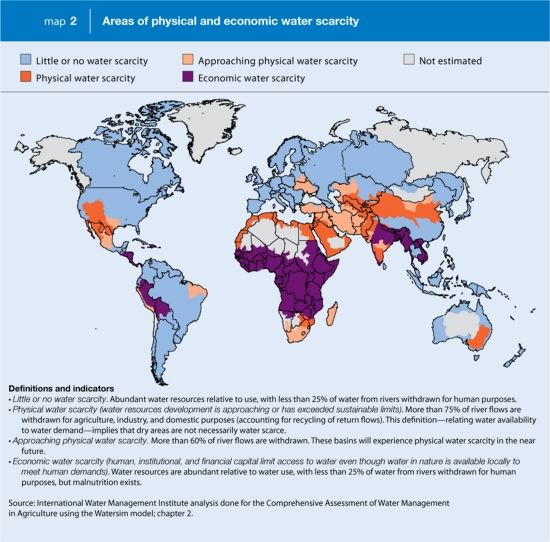March 22 is World Water Day, created by the United Nations General Assembly and first commemorated in 1993 to raise awareness and encourage action around water issues.
Many of us take access to clean water for granted. It is readily available in our sinks and showers and even in plastic bottles. But, for a vast and growing number of people, access to safe water is a major health issue:
As with many environmental issues, blame is too often placed on population growth. This masks the realities that actually cause the problem. According to National Geographic:
- Over half of the world's illnesses are due to diseases caused by unsafe water.
- One billion people on the planet don't have access to clean drinking water.
- By 2025, this number could be 1.8 billion, unless we act.
The average U.S. lifestyle takes 1,800 gallons (6,814 liters) of water a day to support -- twice the global average.Meanwhile, major polluters who, big surprise, are corporations rather than individuals, are successfully evading regulation.
And yes, this is a feminist issue. Women hold much of the responsibility for obtaining clean water and are often most impacted by water scarcity. And women are taking action.
While this sort of environmental issue is often thought of as occurring in the global south, the impact of water scarcity is spreading. It's already a major problem in the U.S. Southwest. This map, which is a few years old, shows the spread of scarcity caused by both physical and economic factors (click for larger version):
Huffington Post has a list of a number of ways to take action on this vital issue.
(Reposted from Feministing )




No comments:
Post a Comment